
Pics taken by HE’s Michael Merlob.





I’ve never gotten over vague feelings of shame that arose from a minor incident that happened in a McGraw-Hill building bathroom in 1981. Maybe if I finally admit what happened I can get past it somehow.
I’d been hired to work as a freelance writer for a new outfit called Product Information Network (P.I.N.) by a very kind and extremely bright guy named George Finnegan , a friend of my father’s who lived near our home in Wilton, Connecticut. It saved my life, this job, as I was skirting on the edge of poverty when Finnegan brought me on. I was so grateful to be able to report to work on the 19th floor and snag a weekly paycheck and eat lunch every day, etc.
Cut to a moment in the late afternoon when I hit the bathroom. I did my business, washed my hands, combed my hair and hit the light switch as I left. Pure instinct — I always kill the lights when I leave any bathroom. A split second later I heard Finnegan’s deep voice say, “Hey.” He’d been in one of the stalls and I hadn’t noticed, and now he was immersed in total blackness, as there were no windows. I turned around to flip them back on when I heard him bark a second time, only much more sharply and loudly: “Hey!”
The anger in his voice scared me and I panicked. I was suddenly terrified that he’d know it was me, and all I wanted to do was get out of there in case he was about to leap out of the stall and turn the lights on himself. He might get really angry, I feared, and possibly fire me or something…who knew? I only knew I didn’t want to be busted. So I bolted out of there and left him in the dark. It makes no sense, I know, but that’s what I did.
As I was hurrying back to my office I heard Finnegan say “HEY!” one last time and then, “God damn it!”
I was terrified for the rest of the afternoon, thinking he might have suspected it was me and would call me into his office and grill me, etc. But nothing happened. I’ve told myself since that everyone panics and it’s not a major crime. Also that if Finnegan hadn’t sounded so angry as he blurted out that second “Hey!” I would have turned the lights back on. I can say that with confidence. But he scared me so I ran.
If he’d only been a little calmer about it. It was all my fault, of course, but if Finnegan had said in a mild, light-hearted tone of voice, “Uhh, hello there…? Lights?” That wouldn’t have caused me to panic, I’m fairly sure. So in a way it sorta kinda was Finnegan’s fault.
I’m kidding, I’m kidding.
HE’s Michael Merlob has filed the following from ComicCon about Francis Coppola‘s Twixt preview-and-discussion panel: “Coppola descended on Comic Con in what was the most enjoyably disastrous panel in recent memory. There with composer/musician Dan Deacon and star Val Kilmer, Coppola made for a lovably fuddy-duddy host as he introduced the first-ever promo footage from his new gothic horror film Twixt.
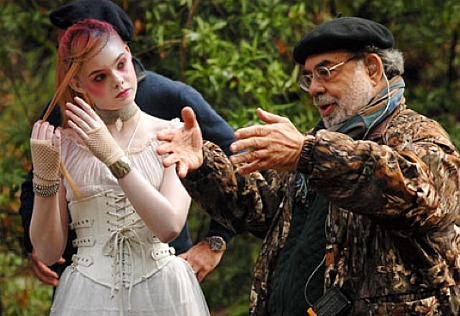
“The Twixt footage suggests an unhinged student film. With Kilmer playing a low rent horror author who becomes embroiled in a small town mystery while on a signing tour, the footage felt underwhelming. We all know what Coppola’s been up to the last few years, stuck in his own little world, and his recent output, regardless of how personal it may be to him, has left many frustrated. Twixt looks to be no different in spite of its genre trappings.
“Coppola explained that the film came from a dream he had about Edgar Allen Poe, and indeed Poe himself makes an appearance (in a much more physically accurate form than what John Cusack appears as in the upcoming The Raven). Elle Fanning costars.
“Kilmer looks delightfully deranged in the footage that was shown, and it’s possible that Twixt could become a sort of cult disaster, a whacked-out ode to the very artistic excesses of its lead and creator. Indeed, it feels as though Coppola himself has become Colonel Kurtz — bulky, charismatic if not magnetic, enveloped in his own fantasies and creative morass.
“Interestingly, Coppola also announced his intention to take Twixt on the road, four-
wall style, and literally play alternate versions of the film to audiences, featuring Deacon’s live music. Following this announcement, Coppola showed the crowd a re-mixed version of the promo reel that he drew up on the fly using an iPad, with Deacon providing live music to accompany it, at one point spinning an almost hip-hop beat into the mix set to Coppola’s voice uttering the word “Nosferatu” repeatedly — bizarre and hilarious.
“Unfortunately, given the mediocre quality of the footage and Coppola and Deacon’s comical fumbling with the computers onstage, the whole thing came off as merely odd rather than engaging.
“The audience however, in spite of the technical mishaps, remained enthused and engaged simply by virtue of Coppola’s presence. He made for a wonderful host, and his passions thankfully remain intact and unchecked. While there’s a stroke of artistic brilliance in Coppola’s technical ambitions for Twixt, it doesn’t appear that the content itself is worthy of the pursuit. Hopefully the iffy quality of the presentation isn’t indicative of the film as a whole, but for now Twixt appears to be Coppola’s latest domed fever dream, leaving him but no one else inside the hothouse bubble of his mind.”
The Hollywood Reporter‘s Borys Kit is reporting that Harrison Ford has attached himself to Black Hats, a 1920s-era action film in which he would play an aging Wyatt Earp pooling forces with Bat Masterson against a young Al Capone and his New York henchmen.
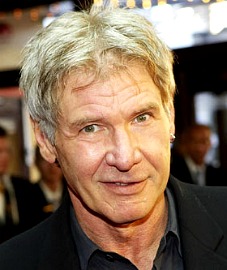
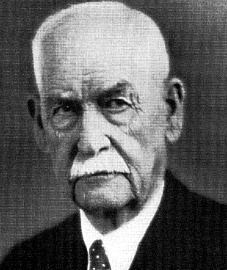
Pic would be an adaptation of a Max Allan Collins novel with a screenplay by Kurt Johnstad (cowriter of 300 and 300: The Battle of Artemisia).
Kit’s synopsis, condensed: “An older Earp, spending his last years as a private detective and movie consultant in Los Angeles, learns that his friend and compatriot Doc Holliday had a son, now living in Prohibition-era New York City. While Holliday is long dead, the son has gotten himself in trouble with a rising mobster, Al Capone. Earp teams up with Bat Masterson, one of his former deputies and now noted sportswriter for the New York Morning Telegraph, to take on the gang in what becomes a tale of six-shooters versus tommy guns.”
Perfect! This could be great for Ford. It could be his last really iconic stand-up role. You can feel the potential in the premise.
The problem is Johnstad. You need a serious older-guy, soul-man writer — someone on Steve Zallian‘s or Tony Gilroy‘s or Robert Towne‘s level — to give this film the right kind of old-school polish and gravity. In my eyes Johnstad is an ex-electrician android screenwriter — a by-the-numbers guy. He wrote Act of Valor, the rah-rah Navy Seals rightwing movie. Anyone who can serve Zack Snyder is suspect, in my my book.
Boxoffice.com‘s Phil Contrino is projecting that Nicholas Winding Refn‘s Drive (FilmDistrict, 9.16) will open with $13 million and top out domestically at $42 million. Or, in other words, final earnings may be about about half of the $86 million that Fast Five took in its first weekend. They’re both fast-car movies, and that’s where they separate.
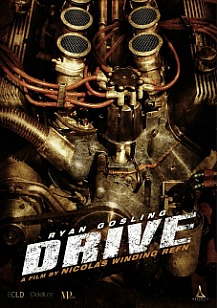
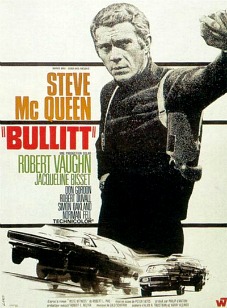
Drive will open in far fewer theatres, yes, and Fast Five is the latest version of a longstanding franchise brand that everyone likes or cheaply enjoys, etc. Of course, Fast Five isn’t one-third the film that Drive is. Fast Five is synthetic, revved-up cheez-whiz and Drive is a genuine, perfectly grilled Porterhouse steak with vegetables and sauteed potatoes and a nice glass of wine. And 80% American filmgoers prefer the cheez-whiz. Naturally.
A couple of hours ago a friend described Drive as “kind of an art film.” I choked when I heard this. “But Drive is more or less in the realm of Bullitt,” I said. “It’s different in this and that way but it could have been made by Peter Yates in the late ’60s or ’70s, or by Michael Mann in the early to mid ’80s. That makes it an art film?
“Would Bullitt be considered an ‘art film’ if it had never come out in ’67 and was released today? In 1967 Bullitt was regarded as a total popcorn cop thriller. But by today’s standards it’s seen as a bit somber and austere, my friend was saying. Not video-gamey enough. Terrific. What a degraded movie culture we’re living in today.”
Director Phillip Noyce (Salt, Rabbit-Proof Fence) saw Drive when it played at the LA Film Festival, and has this to say: “Drive‘s artful quirky touches and non-conveyor-belt sensibility certainly set it apart from most studio movies, but it’s a rousing entertainment that simply defies categorizing.”
To go by a description provided by TheWrap‘s Tim Molloy, It would appear that yesterday’s unfortunate ComicCon altercation between Rhys Ifans (Amazing Spider-Man, Greenberg) and security people was Ifans’ fault all the way. He reportedly acted boorishly and belligerently, and that’s no way to be in mixed company.
That said, some security people walk around with a stick-up-their-ass attitude (which I’ve personally witnessed time and again) and some are just too stupid to realize that you don’t fuck with movie actors or people in their entourage. Especially if they’ve had a few.
“It’s not worth it, Mr. Gittes,” Chinatown‘s Noah Cross once said. “It’s reaaaally not worth it.”
Did I not just explain how gray cross-training shoes “look like a form of leprosy” and that “there’s just something about this shoe color that grates on the soul and immediately lowers the value of the stock of the person wearing them”? I posted this only six days ago.
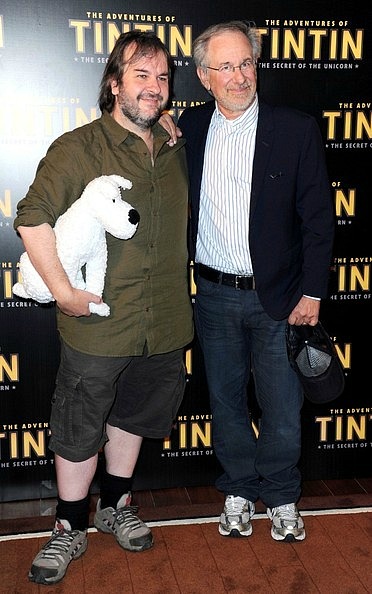
Los Angelenos interested in catching Lars von Trier‘s Melancholia before its 11.11.11 domestic release date should scoot out to Laemmle’s Fallbrook 7 between today and next Thursday, 7.28. The gloomy apocalyptic drama began quietly playing yesterday on a one-afternoon-screening-per-day basis, and will remain there for six more days.
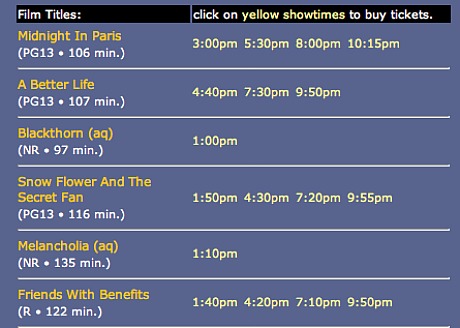
opened in various Nordic countries last May, and Oscar’s Foreign-Language Wiki page says that “unlike other Academy Awards, the Foreign Language Film Award does not require films to be released in the United States in order to be eligible for competition.”
The rules also say that (a) “Films competing in the Foreign Language Film category must have been first released in the country submitting them during the eligibility period defined by the rules of the Academy, and must have been exhibited for at least seven consecutive days in a commercial movie theater,” and (b) “The eligibility period for the Foreign Language Film category differs from that required for most other categories: the awards year defined for the Foreign Language Film category usually begins and ends before the ordinary awards year, which corresponds to an exact calendar year.”
In short, the reason that Magnolia has booked Melancholia at the Fallbrook is beyond my limited pea-brain capabilities,.
Here’s a portion of my Cannes Film Festival Melancholia review:
“Lars von Trier’s Melancholia is a morose, meditative in-and-outer that begins stunningly if not ecstatically and concludes…well, as you might expect a film about the end of the world to wrap itself up. Von Trier’s ensemble piece ‘isn’t about the end of the world but a state of mind,’ he said during this morning’s press conference. My thinking exactly.
“Melancholia is a much more striking thing for where it starts and what it attempts than how it plays.
“And yet I believe it’s the best…make that the gloomiest, most ambitious and craziest film Kirsten Dunst has ever starred in. Way bolder than Spotless Mind. It’s kind of La Notte-esque, now that I think about it. Dunst pretty much scowls all through Melancholia and does three nude scenes. What I really mean, I suppose, is that she’s never operated in such a dark, fleshy and grandiose realm.
“I can understand Cannes critics going ‘wow!’ over the film’s audacity or whatever (the moody-gloomy beauty, the melancholy current), but I can’t honestly see how they could call it a top contender for the Palme d’Or. It’s basically just a stylishly nutso, intriguing, semi-bombastic ensemble piece about despair in the face of eventual ruination . You know…the kind of thing that most HE readers have in their heads each and every day.
“I felt elation only in the very beginning, and somewhat at the very end. But otherwise it mostly felt like a meditative slog. It’s not without its intrigues but lacking tension and a through-line and a story, really, of any kind. I don’t imagine this film will be embraced by pro-family Christian groups, or even the rightwing end-of-days crowd (although…naah, forget it).
“The movie is never ‘boring’ but only rarely gripping. It’s Von Trier, after all, but when all is said and done it’s basically a downhill swamp-trudge with tiny little pop-throughs from time to time.
“There’s an overhead tracking shot of two horseback riders galloping down a trail during a foggy morning that’s heartstoppingly beautiful. That plus the beginning I will never, ever forget.
“Melancholia is definitely better than Von Trier’s Antichrist — I’ll give it that. Death dance, death art…when worlds collide. Von Trier had a mildly intriguing idea here but didn’t know what to do with it, or he perhaps didn’t care to try. All he does is riff about how tradition and togetherness are over and very few of us care. My sense is that Von Trier experimented and jazz-riffed his way through most of the filming.
“All I know is that I feel the way Dunst’s Justine feels during most of the film, and I’m not dealing with the end of the world. Vaguely scared, unsettled…something’s coming.”
After a brief singing career at the top (roughly ’06 to ’08) that was pushed along by a powerful Motown voice mixed with beaucoup pain, and a life continuously marked by reports of drug abuse, Amy Winehouse is dead. Her body was reportedly found a few hours ago in London. The presumption, given Winehouse’s self-abusing tendencies, is that she bought it.
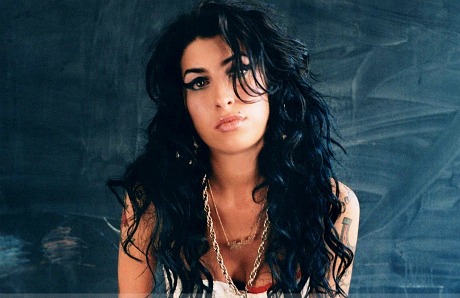
Yes, it’s possible that Winehouse was walking outside and a tree fell on her and then she was carried into her apartment by passersby. Or that she was hit by a car. So let’s hold off on any rash judgments.
“She was a mess from the beginning,” says Jett, who knows a lot more about 21st Century music and musicians than myself. “She sounded like a coked-up version of Adele.” Winehouse is now a permanent and illustrious member of the live-fast-die-young music fraternity that includes Janis Joplin, Jim Morrison, Jimi Hendrix, etc. Drugs…yeah!
Winehouse’s best song, ironically, was “Rehab.”